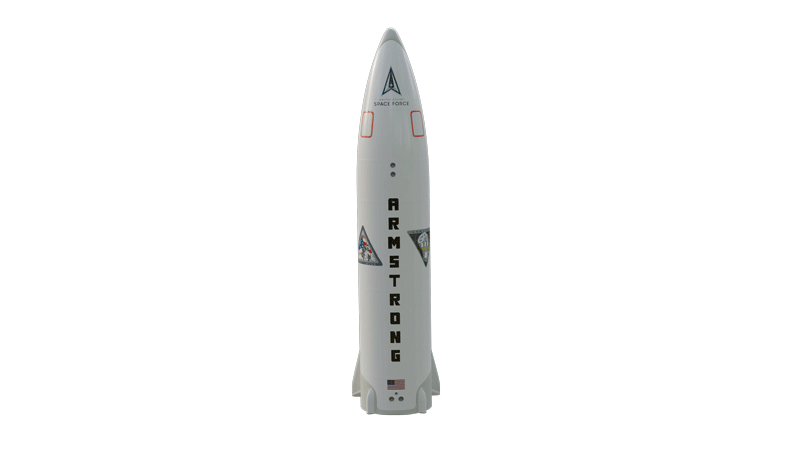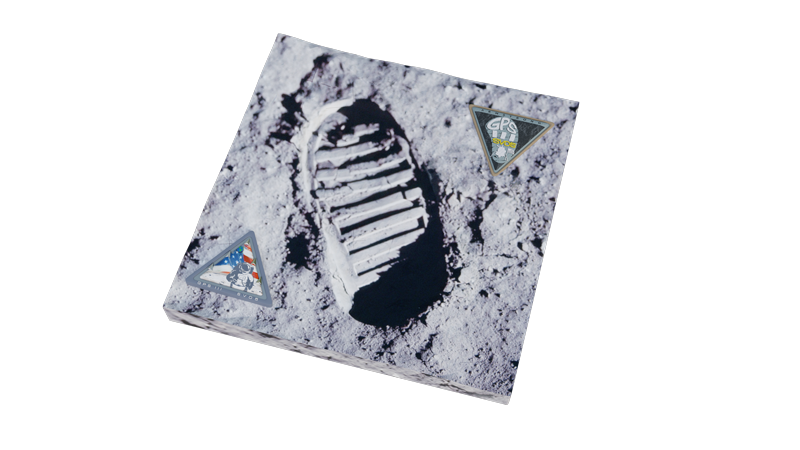The United States Space Force recently announced their first NFT release. Launching a satellite in honor of Neil Armstrong, the Space force decided to commemorate and immortalize this project through accompanying the launch with a collection of one-of-a-kind, blockchain-based assets, fit with augmented reality add-ons.

The collection launch took place on June 14th through Star Atlas (a blockchain-based metaverse offering virtual space exploration with next-generation multiplayer gaming technology), before being released on Ethernity’s platform on the 17th—the GPS III SV05 ARMSTRONG satellite’s launch date. This satellite launch will be the fifth of its GPS III fleet and will aid in advancing the GPS constellation’s navigation services for both military and civilian users.
The NFT collectibles, affiliated with this launch, can be bought on Star Atlas, as well as the VueXR app, until July 20th. Space Force partnered WorldwideXR and VueXR, to release this set of NFTs, with augmented reality add-ons. The collection consists of augmented reality tokens depicting satellites, mission badges, and coins—as depicted below.
Launching campaigns both on the metaverse and earth’s orbit, this project supports the U.S. military and its veterans, though it should be noted that it is not officially connected to, or endorsed by, the U.S. Department of Defense.
While countries like Panama have adopted Bitcoin as a reserve currency in place of gold, countries like Turkey have banned the use of cryptocurrencies altogether. Seeing the US Space Force getting involved in the blockchain and metaverse arena might represent a turning point in US attitudes, leveraging the permanence of blockchain and honoring the role of artists in extended reality technology. NFTs are starting to become a household name, and this project will only further advance the NFT name in popular culture.

Following its creation as an independent branch of the U.S. armed forces in 2019, the Space Force was accused of being a vanity project of President Trump’s, amidst its centrality to the administration’s agenda at a time when domestic and international concerns were arguably far more of a concern. The Biden administration has, however, continued to signal full support for the world’s only independent Space Force. The Space Force is, in fact, the only military service set to grow under Biden’s 2021-2022 budget plans.
Biden’s administration has also signaled a future for blockchain-related activities, through mention in the new “American Families Plan.” Biden contends that cryptocurrency represents a “relatively small portion of business income today” but that “cryptocurrency transactions are likely to rise in importance in the next decade…” Accordingly, government response to blockchain activity remains preliminary, but this symbolic collaboration certainly marks a historically significant moment for the NFT space.
As articulated by Michael Wagner, co-founder, and CEO of Star Atlas, “this partnership unlocks the potential of blockchain technology. It immerses our community in the growing adoption of real-time graphics, multiplayer video-game, and decentralized financial technologies on the Solana blockchain” through mainstream channels.
With the launch of this project, the US Space Force hopes to inspire more people to explore space and, coincidentally, the metaverse too.




